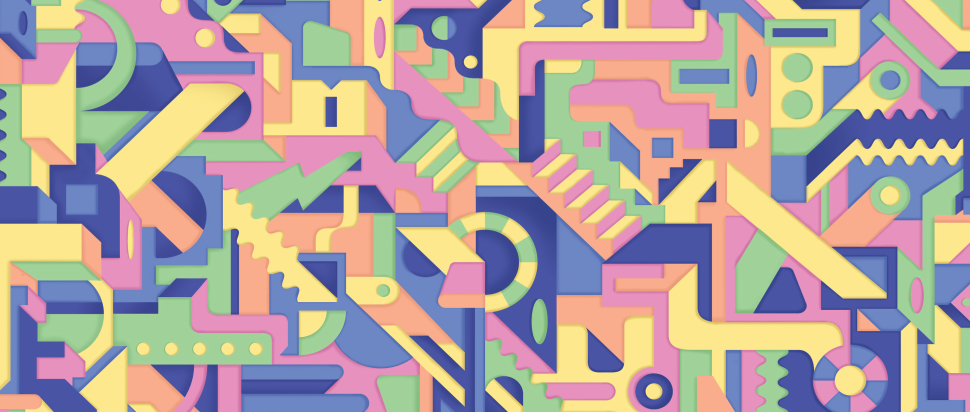Nwando Ebizie on Kink and Accessibility in The Arts
We meet artist Nwando Ebizie for a virtual chat on her work-in-progress, Kink and accessibility
Nwando Ebizie is a polymath – musician, dancer, composer, consultant and curator, to name just a few. This year, she was commissioned by Unlimited Arts to support her ongoing work exploring Kink and what true change could look like in the arts for disabled artists and audiences. The opportunity has allowed Ebizie to move further from the realm of visual art and more towards the written word as a way to extend and deepen her art’s impact. She speaks about what is needed for society to include disabled people in the planning, design and formation of projects and architecture so that they are genuinely accessible.
Ebizie shares her personal challenges with self-identifying as disabled and falling into the neurodivergent category – mental or psychological differences that are often invisible. She attributes the doubt her and other individual’s disabilities are met with to socially-ingrained attitudes.
“I think it’s a lack of self-compassion bred into society. So I think sometimes people living with a secret mental illness or chronic illness... I mean look at the Black Panther star Chadwick Boseman. People were saying ‘Oh he’s so amazing he was living with a secret.’ And it’s like yeah, but why was he living with that secret? The fact is, it would have affected his career in the film world. Would they have even given him the Black Panther role if they thought he’d die in a few years? Health conditions: are they a part of disability? I would say yes.”
Ebizie has also seen the need for expanding the definition of a disability in her own life where friends and colleagues fail to set boundaries or listen to their own needs.
“The amount of people who I’ve worked with or in my family who have access needs who would never classify themselves as disabled and will find ways of functioning. They find ways of self-medicating, they find coping mechanisms... or they accept that there’s this thing called burnout. I hope that the edges become more blurred as we start to understand needs on a spectrum. And I think that’s going to help everybody.”
Ebizie talks about what drew her to Kink – BDSM and fetishes considered outside the norm – and how its community is very much centred around respecting people’s limits. She references the quote from Oscar Wilde: “Everything is about sex, apart from sex which is about power.” Ebizie goes on to discuss how identifying existing power structures through the lens of Kink can help dismantle them by actually having frank, public conversations about sex. Ebizie says of sex: “You’re meant to kind of go with the sexual mystery with your partner. We’ll find out as we go along. And anything else is killing the magic.
“I think one of the problems in society is the inability to talk about sex in a society where porn is the most popular thing on the internet. It's really bizarre. It’s the hypocrisy of the puritanical society.
“One of my interests in Kink is that it offers a healthier understanding of a fundamental issue,” says Ebizie. Many practices within Kink offer self-care tips on aftercare and consent that can be adapted to everyday life scenarios, ultimately protecting one’s physical and mental wellbeing.
Boundary-setting is now more important than ever. 2020 may have gifted those with long commutes and cramped cubicles with home offices, but for creatives whose hours already extend beyond the 9-to-5, many artists share the sentiment of feeling more exhausted and overworked than ever before. It seems fitting then for us to consider what Kink can teach us about how we conduct our personal and professional relationships.
When asked how the arts sector and arts institutions can improve accessibility for disabled artists and viewers, Ebizie responds immediately with “so many thoughts".
She says: “I’m interested in disabled people being involved in the inception not only of projects in creative organisations but also in the design of space. We’ve experienced how it works when things are added on. You add on a ramp or you add in a lift and everyone can pat themselves on the back because people in wheelchairs can get in now. If you have a disability you’re going to think about things in a different way especially if you have a sensory disability or sensory difference.”
The interview ends on a positive note with Ebizie saying, “If more people were given the chance to voice their needs and desires, sexual and otherwise, every part of society would look radically different because it would be molded by people with different abilities, backgrounds and perspectives.”
Emily Rueggeberg is one of the participants in the Diverse Critics scheme, produced in partnership with Disability Arts Online and Creative Scotland
Stay up to date with Nwando Ebizie’s work on nwandoebizie.com
